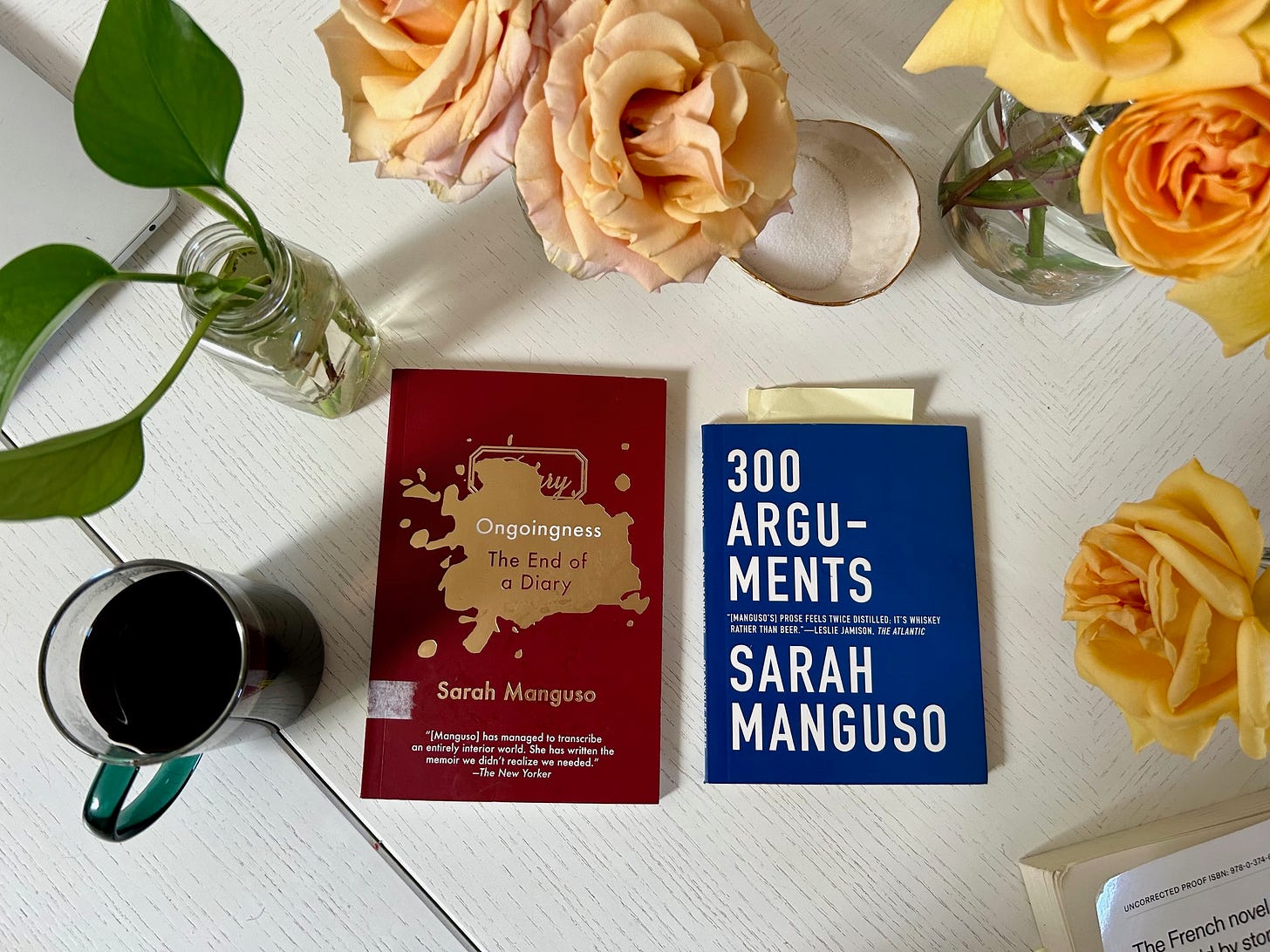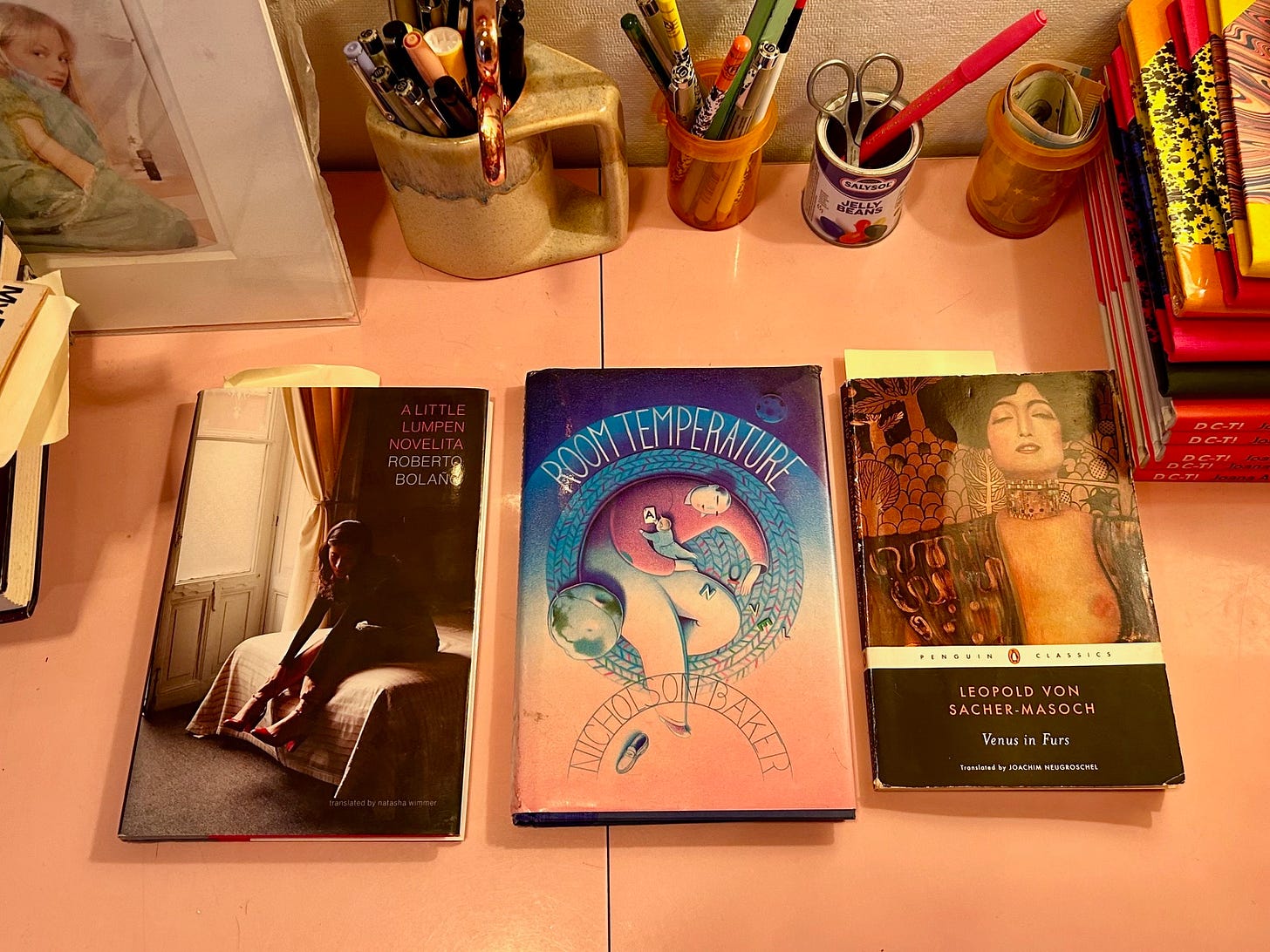Length training
The natty method of getting a jacked attention span. Dumbed-down Nietzsche. Babygazing.
Couple of things about reading when you have a newborn baby. One, what we call the "attention span" must be reinforced piece by piece after months of disrepair. The final month of pregnancy is not a time in which the mind frolics through meadows of abstraction; it's a time of logistics, preparation, hydration. You lose your human specificity and experience a rapid conversion into generalized mammalhood. Which is lovely! (Not least because it is brief and reversible.)
Then the child emerges and your ability to focus returns with a vengeance, presumably for the biological reason that there now exists a creature whose life depends on it. In my case, a tiny but potent quantity of "overflow focus" remains after child-husbandry duties are complete (or complete enough) and it has been very exciting to spend this overflow-focus doing what I love best...which is processing words.
To restore the crumbled bridge of my attention I embarked on a course of, let's call it "length training." Meaning, I started by reading aphorisms (Adorno, Cioran) and worked my way up to poetry fragments, followed by full-length-but-brief poems—
..and then vignettes:
...and finally novellas:
And that's where I am today. Summitting a novel currently sounds impossible…but who knows what the future holds?
The Bolaño above, incidentally, is a reread. On a recent walk I passed a stoop arrayed with a freakish collection of books: Bolaño novella, history of stained glass, three pamphlets on how to naturally increase testosterone, and a cliffnotes / "idiot's guide" to Nietzsche (which I took, helplessly curious to find out whether Nietzsche is amenable to being dumbed-down. Verdict: he is not amenable to it, which is probably a good test of excellence for any thinker—to write irreducibly...)
Anyway.
The coo and gurgle of a baby makes a tranquil sonic foreground to the turning of pages. Babies don't seem to mind if you gently rest the spine of a book on the plane of their back. Nor do they mind if you read an occasional passage out loud, even a boring passage. It falls on ears that are deaf to meaning, though not to tone.
Environmental psychologists have studied the effects of pausing during intellectual tasks to gaze at natural landscapes; apparently the (low) level of stimulation offered by staring at a grassy grotto (or whatever) happens to abet more demanding forms of mental processing. This is why you should always be stationed next to a window that overlooks a lush pasture or fruiting orchard when you compose your libretti or solve your equations!
Failing that, you can have or obtain a newborn baby; I've found that intermittent babygazing serves the same function. Read a few pages, pause to behold the creature, read a few more pages.
A second datum about reading with an infant is that you develop asymmetrical musculature from holding a baby in one arm and a book in the other. Soon I will complete my transition into fiddler crab:






